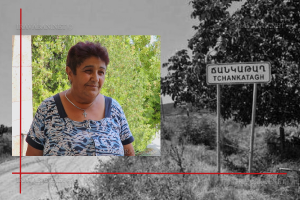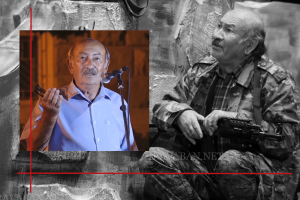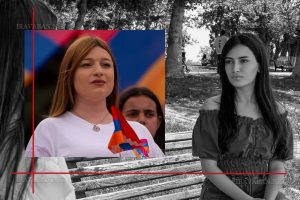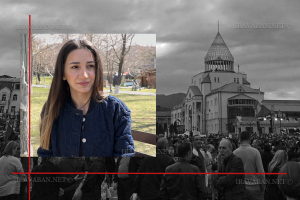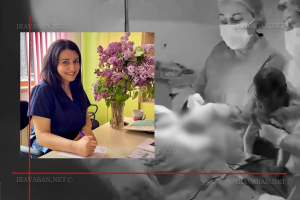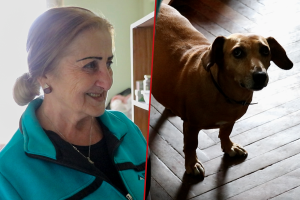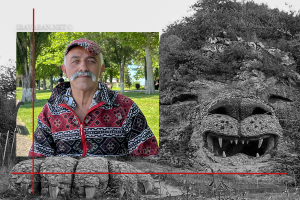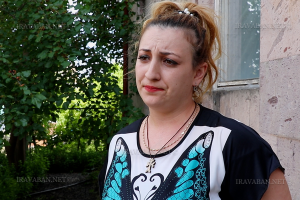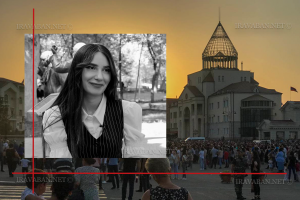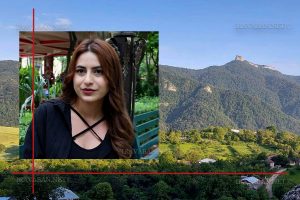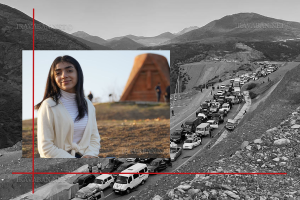Mher Shahbaryan, who was forcibly displaced from the occupied Republic of Artsakh, told in the framework of “Artsakh: Armenian Genocide 2023. Stories of Survivors” documentary project that he was displaced from Aparadzor village of Martakert region.
His son Davit Shahbaryan was killed on 19 September, 2023 as a result of another aggression unleashed by the enemy.
“He took part in all three battles, he survived two of them, and he died in this last battle. He has two sons, one is 7 years old, and the other is 9. Our hope is to keep David’s memory alive,” our interlocutor said.
There are five people in the family. Only their daughter-in-law works. They live on rent.
“We did not know that a fight should take place. On 19 September, my son called from the border and said, “Mom, there are so many Turks, there is no escape from this.” And the mother said: “David, don’t be afraid, your father has seen such things a lot.” Who would have known that it would end like this,” Mher Shahbaryan said.
They did not know for two days that their son was killed.
“They said that they fled to the forest, but no, there was no way to escape from there. Only 1 person out of 10 survived. We were also waiting for David to come through the forests. We waited for two days. A friend boy stretched out his hand and said: Mher, I offer my condolences. I said: ‘what are you saying?’ It was then that I learned that Davit had not survived. There were reports that they were under siege,” he said.
Davit Shahbaryan’s body was in the forests, which were already occupied by the enemy. With the help of the International Committee of the Red Cross and Russian peacekeepers, they managed to get the body out and hand it over to the family.
“They searched for several days. Those who were found earlier were buried in Stepanakert. Since David’s body was found late, we were able to bring it here,” he said.
Our interlocutor said that they were taken to Stepanakert airport.
“But they still said, if they shoot we were be hit as well. We went to a friend’s house from there. We took only our clothes with us, because we came from the village to Stepanakert and thought we would go back again. But we learned that Artsakh no longer exists,” Mr. Mher said.
According to him, the enemy was in the territory of Stepanakert. “If it continued for a few more days, they would have kill everyone, that was their goal.”
Their family left Artsakh on 25 September; on the same day, their son’s body was found.
“Artsakh: Armenian Genocide 2023. Stories of Survivors” documentary project of Iravaban.net is aimed at collecting the memories and testimonies of citizens forcibly displaced from Artsakh occupied by Azerbaijan, about the genocide of the Armenians of Artsakh committed by Azerbaijan, atrocities, the days of war, the path of deportation, etc.
Iravaban.net seeks help from citizens who will voluntarily agree to translate materials into different languages: Russian, English, French, Arabic, Persian, Turkish, Georgian, Chinese…
You can write to our e-mail address at: [email protected]
To donate for realization of the project: https://iravaban.net/en/become-a-supporter
Armenian Lawyers’ Association is the author of the idea “Artsakh: Armenian Genocide 2023. Stories of Survivors” documentary project of Iravaban.net and is the owner of copyright of the materials created within the framework of the project. In case of using the materials produced within the framework of the project, it is necessary to obtain the written permission of the Armenian Lawyers’ Association.
Hasmik Sargsyan

